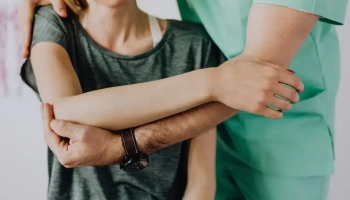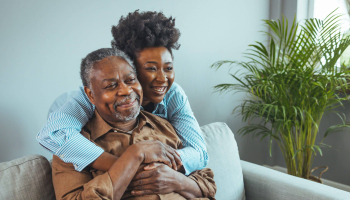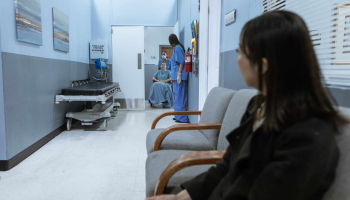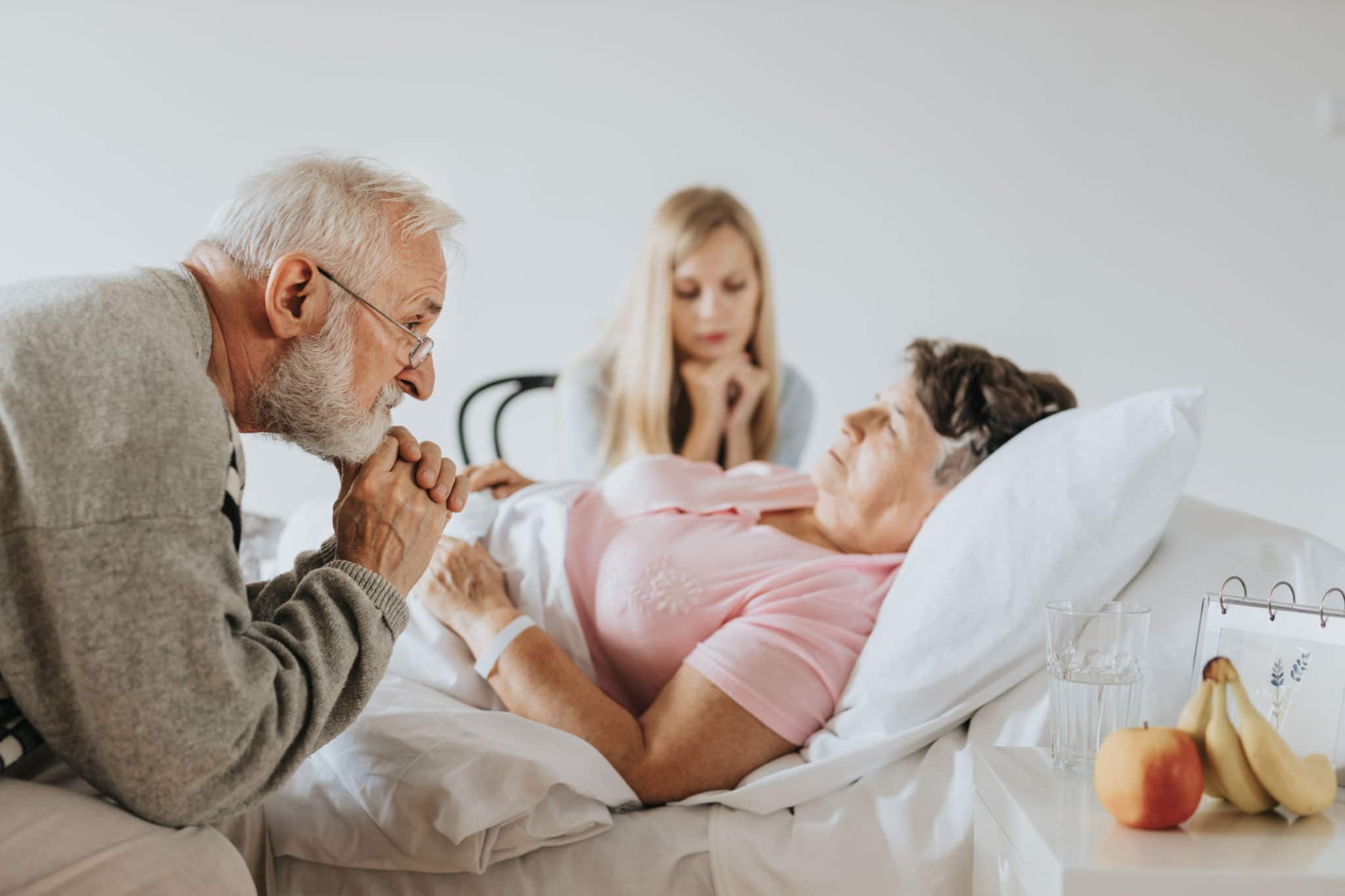
Even though hospice care is the most compassionate way to manage your end-of-life suffering, many people still choose to die at home without any hospice care.
Dying at the hospice is better than at home because of the emotional burden left to your family
I reckon this to be a lack of information on their part.
Hospice services can greatly reduce the physical and emotional pain of dying at home while also helping you maintain a sense of dignity and control.
By choosing hospice care, you get highly trained professionals who will help you live out your final days in comfort and with dignity, even if that means dying at home instead of moving into a nursing facility.
Disadvantages of dying at home without hospice care
- For one, at the hospice, the workers will know when your patient is dying and call you up to have the last words with them.
Yes, medical professionals are well-trained in the study of dying. There is a whole science dedicated to it!
Signs of death that a hospice caregiver can easily pinpoint
This means that doctors and nurses see patients who have begun their journey towards death on a daily basis. The signs can be hard to spot if you don’t know what they look like, but there’re some things medical staff will notice for sure – here’s how:
- The first sign is really quite obvious; when someone stops eating or drinking anything at all, this person has decided not to live anymore and usually passes away within just two days after refusing sustenance.
- Another telltale sign? When somebody no longer wants any visitors coming into his room because he knows its time… Time does pass quickly!
- Sleeping more: According to Medicalnews website, people who are dying have less metabolic energy. They therefore spend most of their times sleeping. If that is the case with your patient, you need to take good care of them. Keep them warm. Put the best music for them and tell them nice stories of their past conquests or anything that they would like to hear. You also have to be attentive in case they want to tell you something.
- Change in vital signs
The vital signs such as blood pressure, heartbeat and the breathing patterns are going to be affected.A person dying will have less bowel movements and little pee. This is mostly caused by the fact that they do not want to eat at all. At the same time, since they have less metabolism going on, even the metabolic waste goes down.
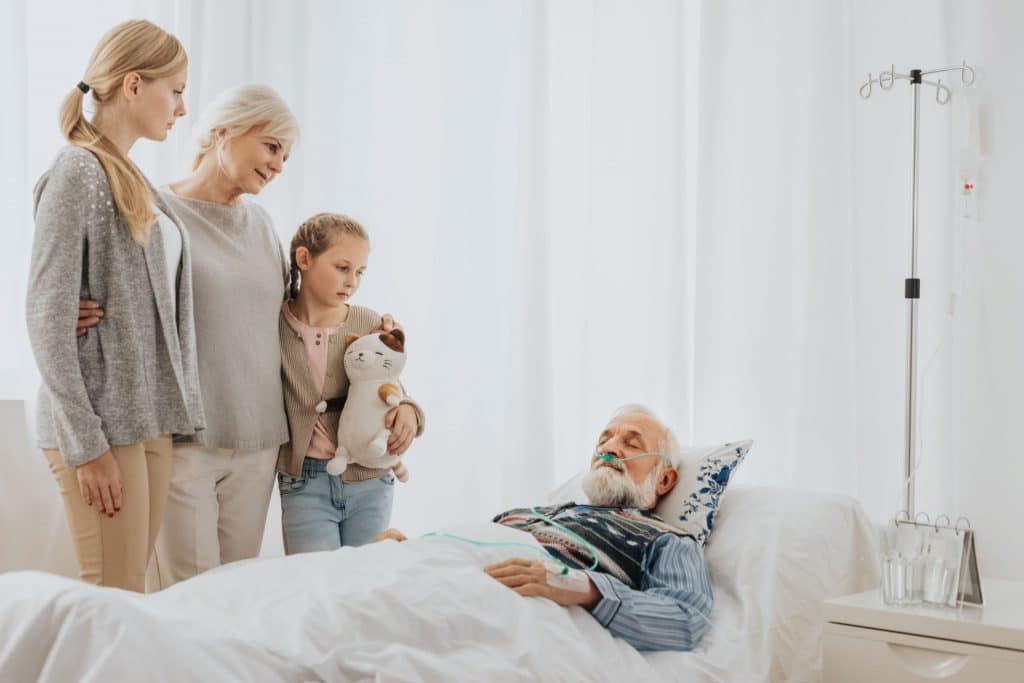
5. Increased pain
A dying person is going to complain that they are feeling more pain. They might therefore want you to give them more pain meds in order to relieve them from the seething pain that they are feeling. At other times, they might even ask you to give them overdose of drugs so that they can die without the much pain that they are feeling.
6. Confusion and hallucinations
A dying patient might show signs of confusion where they seem not to recognize anything or anybody no matter how close they are to them. They might also start having hallucinations.
7. Wasting of muscles
A dying person will become very weak and their muscles will lose their strength. They will also tend to become emaciated simply because they have refused to eat anything.
- Two, is the grief counseling that your family receives when you die receiving hospice care. Caregivers and medical practitioners are trained to accord the best form of grief counseling to the family of the patient who died. When you die at home without hospice care, your family members might get depressed and feel really sad as they struggle to deal with your loss.
Had you received some hospice care, they would have smoothly transitioned from your loss and gone back to their daily lives.
- Patients who die at home do not really know that they are causing great disturbance to the people around them. Before your passing on, you family members are there around you battling with what is happening to you. They can see your pain and this greatly disturbs them because they do not have the know-how of helping you. They are therefore not able to work on their daily projects. The only time they are able to move on with their lives is when you breathe your last. They might also have to deal with the taboo of washing you up and taking you to the toilet where they see your private parts. It will take a long time of healing before they can recover from this.
At the hospice though, they have given you up to professional workers who do a great job of taking care of you while they can go on with their careers. Every time they come for visitation at the facility, they will find you well taken care of and clothed. You are therefore not a burden or impediment to their careers and daily hustles.



